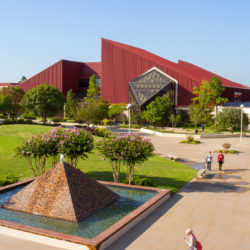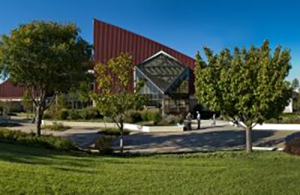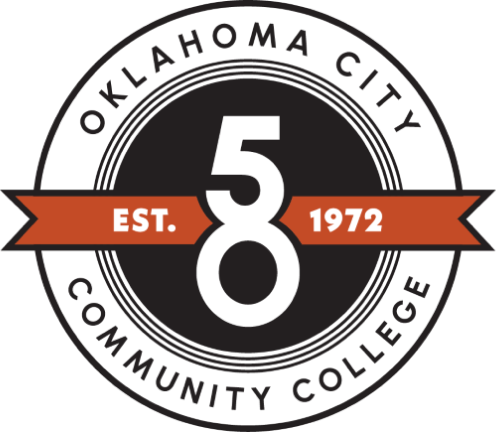Facilities Management Energy Conservation Program
Facilities Management
7777 South May Avenue
Oklahoma City, OK 73159
Hours of Operation:
Mon-Fri: 8 a.m.-5 p.m.
Energy Conservation Program
NEW ENERGY LEGISLATION FOR HIGHER ED
Governor Mary Fallin has signed Senate Bill 1096 into law, which directs all state agencies, colleges, universities, and career techs to reduce their energy costs by at least 20 percent by the year 2020. Fallin estimates that such reductions could save the state up to $500 million over a 10-year period. According to an article in NewsOK, the statewide energy reduction program will begin in August 2012.
This bill was inspired by a letter written January 9, 2012, to the Oklahoma Regents for Higher Education and presidents of Oklahoma’s public colleges and universities. In her letter, Governor Fallin asked for statewide implementation of energy usage plans similar to the one in effect since 2007 at Oklahoma State University.
OCCC Board of Regents approved the adoption of the OCCC Energy Conservation Program and Policy.
Dr. Boyd reminded the Board of SB 1096 which requires state agencies to have an energy conservation program in place to increase energy savings by at least 20% over a 8-year period (2012-2020). Dr. Boyd says that OCCC has been on top of the program and has been very active in energy conservation. Regent Youngblood commented that he appreciates all that OCCC has done in the area of energy conservation, and says he knows that achieving this will be even tougher because of being proactive in this area in the past, but he says he expects all of us to work together to accomplish the requirement. Dr. Boyd concluded by saying OCCC has already had energy audits performed in anticipation of this legislation, so OCCC will be best prepared to comply with the law.
Best Energy Practices
Every person is expected to be an "energy saver" as well as an "energy consumer." However, as an energy consumer, you can make a difference by taking the following steps to reduce energy consumption in offices, classrooms, residential life buildings, and even at home.
- Turn off lights when you leave the room.
- Turn off computers, monitors, speakers, and printers when not in use.
- Turn off TVs, stereos, and appliances when you leave the area.
- Unplug all chargers when not in use.
- Keep doors and windows closed when heating, ventilation, and air- conditioning (HVAC) systems are in use.
- Close window blinds and angle them up when leaving for the day.
- While room is occupied, set thermostats to 74-78 degrees for cooling and 68-72 degrees for heating.
- During summer months, set thermostats to 82-85 degrees and Auto when leaving for the day or weekend; and, leave ceiling fans running at low speed to circulate air.
- During winter months, set thermostats to 55-60 degrees and Auto when leaving for the day or weekend; and, leave ceiling fans running at medium speed to circulate air.
Energy Links
- Energy Hog
- Energy Star
- Environmental Protection Agency
- Sustainability
- Green Drivers: Tips for Eco Friendly Commuting
- The Center for Green Schools
Energy Tip
About 90 percent of the electricity used by everyday incandescent bulbs is lost as heat. Replace incandescent bulbs with compact fluorescent light bulbs (CFLs). They provide just as much light with one-fourth the energy.
OCCC Green Tips
By making simple changes in our everyday lives, we can improve the planet we all share. To assist, the OCCC Facilities Management department provides these green tips to all interested in finding ways to protect the Earth.
Quote
"We must have a relentless commitment to producing a meaningful, comprehensive energy package aimed at conservation, alleviating the burden of energy prices on consumers, decreasing our country's dependency on foreign oil, and increasing electricity grid reliability."
~ Paul Gillmor









